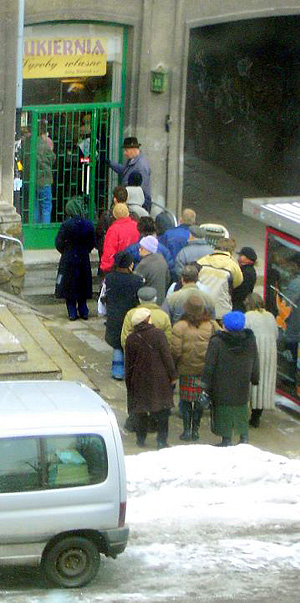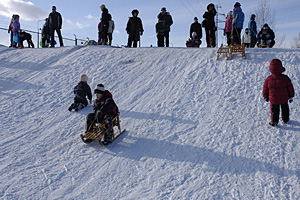CAN
REPUBLICANS ENDURE THE COST OF NOT SUPPORTING UKRAINE?
Randy M. Mott[i]
Orignially written in October 2022
At this point in
time, the Ukrainian army is humiliating Putin’s army and dramatically reversing
his invasion. Displaying incredible courage and at the same time patience, the
Ukrainian soldiers have quickly learned mastery over NATO and especially
American weapons that have made the difference on the battlefield. Long-range
precision artillery and rocket fire have offset the Russian advantage in the
number of guns, then have overwhelmed their command-and-control centers, ammo
dumps and now troop concentrations. Stingers have negated Russian close air
support. HARM missiles have neutralized Russian air defenses. Russia is not
just withdrawing; it is frequently being routed.
Despite a clear
victory brewing over one of American’s most persistent opponents, many in the
American conservative movement are pushing back on U.S. military assistance to
Ukraine. Social media is filled with allegations of Ukrainian corruption,
neo-Nazi allegations, and isolationist impulses, mostly from people who would
describe themselves as MAGA voters.
This
reflexive negative reaction of some to the Biden Administration’s aid efforts
threatens to totally undermine Republicans at the polls in future elections,
beginning in 2024. Virtually none of the criticism of the support is
directed at any factual situations. Ukraine’s historical corruption and
occasional neo-Nazi inconsequential figures are used to try to discredit the
whole defense of Ukraine. Both are major Russian propaganda lines being
aggressively pursued by America’s enemies. Photoshopped pictures have been
found in virtually all the “neo-Nazi” posts. The superficial charge has been
thoroughly debunked, but MAGA supporters keep posting them.
Special efforts
have been made to track aid and assure deliveries for the intended purposes. The
Inspector General of Department of Defense, emphasized that NATO
representatives "seem to be confident that sufficient security measures
have been taken for the supply of weapons.” MAGA folks should remember that
Trump stalled aid in 2019 to assure that corruption issues would not divert any
help. He was confident and released that military aid package.
Most MAGA voters only know Ukraine from the Hunter Biden
scandal, mistakenly attributing the behavior of the prior Ukrainian government
to the current one. Zelensky was elected on an anti-corruption platform and
defeated the prior president who was heard on leaked phone calls talking about
Hunter Biden covering for them. And, of course, there is a new bit of “Biden
derangement syndrome,” which holds that anything Biden does must be corrupt and
wrong.
Before detailing
the frailty of these arguments, I want to advance forward to 2024. Ukraine is then
free and celebrating. Epic stories emerge of the heroism of the people and the
depravity of the Russian occupiers. There is already enough confirmed material
on both these narratives to do multiple TV specials, online movies, books, and
hundreds of personal interest news stories. This will evolve into a global
celebration by 2024.
On a more
substantive level, Ukraine’s victory will mean that Putin has been declawed.
His military has been reduced to a shadow of its former self with no ability to
rebuild due to sanctions. No piece of modern Russian equipment (generally
underperforming in combat) can be now produced without Western technology.
Politically, Russia has never been more economically and politically isolated.
War crimes cases will be ongoing and trigger disgusting news. The United
States, for supplying the key weapons and training to win the war, will be
riding high. NATO will be stronger with new members in Sweden and Finland and a
strong ally in Ukraine. Having frequently blocked U.S. NATO initiatives, Germany
will see substantially reduced influence in Europe, both due to its slow walk
on military aid and its foolish dependence on Russian energy sources.
Democrats
ironically will claim a great victory and will assume full credit for fighting
to get the necessary aid to win the war. Ironic in the sense that Biden’s first
impulse was to fly Zelensky out of Kiev, achieving a key Putin objective early
in the war. The Democrats resisted sanctions before the invasion to respond to
the build-up. Obama and Biden refused to provide lethal aid in 2014, despite
Congressional authorization. What changed the situation was Zelensky’s
brilliant leadership and very effective public opinion campaign. Only after the
public opinion shifted did Biden get on the train. Once on board, this became a
major feature of his foreign policy and the source of many headlines. This will
grow to a crescendo by 2024 with a Ukraine victory.
How will MAGA be
perceived by 2024 on this issue? The Ukraine story will be a major feature in
the public spotlight. Quotes by Republicans from Donald Trump, Rand Paul, and
others will be used to create a new paradigm: a new Russian collusion
case, not based on minor election meddling, but on subverting the defense of a
courageous country invaded by Putin’s evil army. This will be seized by legacy
media, become a firestorm on social media, and used with a broad bush against
every Republican candidate. It is naïve to assume that this would not be a
major Democrat theme in future elections.
Democrats will allege that Republicans
wanted to decline to help the defense of millions of innocent people being
subjected to rape, looting, murder and “re-education.” Because of a tiny number
of extremist neo-Nazis, marginal nut jobs, the same conservatives who blast
liberals in the U.S. for trying to generalize from similar cases will be
caught doing the same thing, but at the expense of millions of innocent women
and children. All of this will make the old Russian collusion case look tame
indeed.
But we do not
need to go to that future. Republicans have historically been stronger on
Ukraine than Democrats. Trump recognized
the folly of Germany and other Europeans dependence on Russian natural gas. We
fought for lethal aid in 2014. We fought for pre-invasion sanctions. So why do some
of our elected and opinion leaders parrot pro-Russian propaganda about Nazis
and corruption in Ukraine? There is no evidence that either have played any
role in the defense of Ukraine or that they are in any way whatsoever relevant
to the U.S. military assistance (a major part of which is older equipment in
storage turned over with an accounting entry). These voices never tell us why
their allegations should lead to us declining aid that is defeating Putin.
A standard
Republican political punch line is now too frequently why we are aiding Ukraine
and not our own people. This gets a visceral reaction from the traditional
isolationists in our party. While it is preposterous to divert HIMARS rocket
launchers or 155mm artillery from Ukrainian aid packages to aid the Florida
relief effort or help close the border, those are the comparisons being made.
Some MAGA folks like to use the punchline, nevertheless. The economic aid is
significant but more not even be a footnote in the giant Democrat spending
bills.
Left unsaid is
the economic impact of the U.S. of a Ukrainian victory and expanded NATO. These
countries are standardizing to NATO specifications and the demand of U.S.
weapons systems is huge. We can not only look forward to increased export
opportunities and new jobs, but our investment opportunities in Ukraine’s
post-war will be huge and very welcomed.
The alternative
to U.S. aid would have been a disaster for the U.S. and NATO. If we allowed
Putin to occupy Ukraine, a vast new border between Russia and NATO would be created.
Demands on U.S. military expenditures to defend NATO would mushroom. Putin’s
control of resources would be greatly increased. All this at a time, when the
U.S. needs to be focusing on containment of Communist China. These are the
stakes and aid is essential.
The Establishment
narrative is that U.S. interests were served by the pre-war status quo,
assuming that Putin will not simply renew hostilities when the opportunity
arose. Blaming the stalled efforts of Ukraine’s pre-war attempt to join NATO as
a provocation is a common line, but totally discredited by real events and
evidence. Putin’s objective to try to re-create Russia’s hold on former Soviet
territories has been made clear now. Pressing Ukraine to stop recovery of its
legal borders and leave Putin to recoup losses, will not end the conflict and
would only postpone it until a time when his odds for success rose. The end
game is pushing Russians out and destroying as much of his army as possible in
the process so he does not try again.
The United
States' support to Ukraine has been the difference in the war. The courage of
the Ukrainian people in literally defending their homes and families has been
amazing and inspiring. U.S. HIMARS long-range rockets, HARM missiles to take out
Russian air defenses, Stingers for air defense cover, other equipment and
training made the Ukrainian army more modern and better trained than the
Russians. Our efforts have pushed NATO allies to increase their defense
spending, often to buy more American weapon systems.
In the post-war
world in Europe, Putin can be contained by the invigorated NATO and Ukrainian
ally. Many U.S. personnel and assts in Europe can be repositioned or brought
home. He may not even survive in the longer-term in his control of Russia. His
bluffs about nuclear weapon use have not been effective to change the course of
the war and military experts, including in Russia, have advised that their use
would not change the outcome of the conventional battlefield. After decades of
defense spending in the trillions of dollars, we have neutralized Russia
with 10% of a single year’s Department of Defense budget. Russians may even
need reassurance that Ukrainian and NATO war aims go no further than the
Russian border, based on the panic now appearing in Russian state-controlled
media. But the world is fundamentally changing as we sit here. While not our
direct objective, there is new speculation that Putin may not survive the
failed war.
Republicans and
especially MAGA supporters, including President Trump, need to get back on the
traditional Republican platform of opposing the evil empire and helping our
allies impose the containment of that empire as it ultimately fails from
within. This is who we have been and more than ever what we should become.
NOTE: In July 2024, the Reagan Institute poll showed that 70% of MAGA voters supported Ukraine winning. But only 50% thought that Ukraine was winning. Things have improved over that period to September 24. Ultimately if Ukraine can win and it is not an endless war, I believe that Republicans will overwhelmingly support the aid. Trump is making a big mistake playing to our isolationist minority also evidenced by the July 2024 two to one GOP vote in the House against an amendment to cut aid.
[i]
Mr. Mott is a retired American lawyer living in Warsaw, Poland. He was a
commissioned infantry officer in USAR. He also serves as the vie president of
the George S. Patton Foundation in Poland. His views are his own.


















